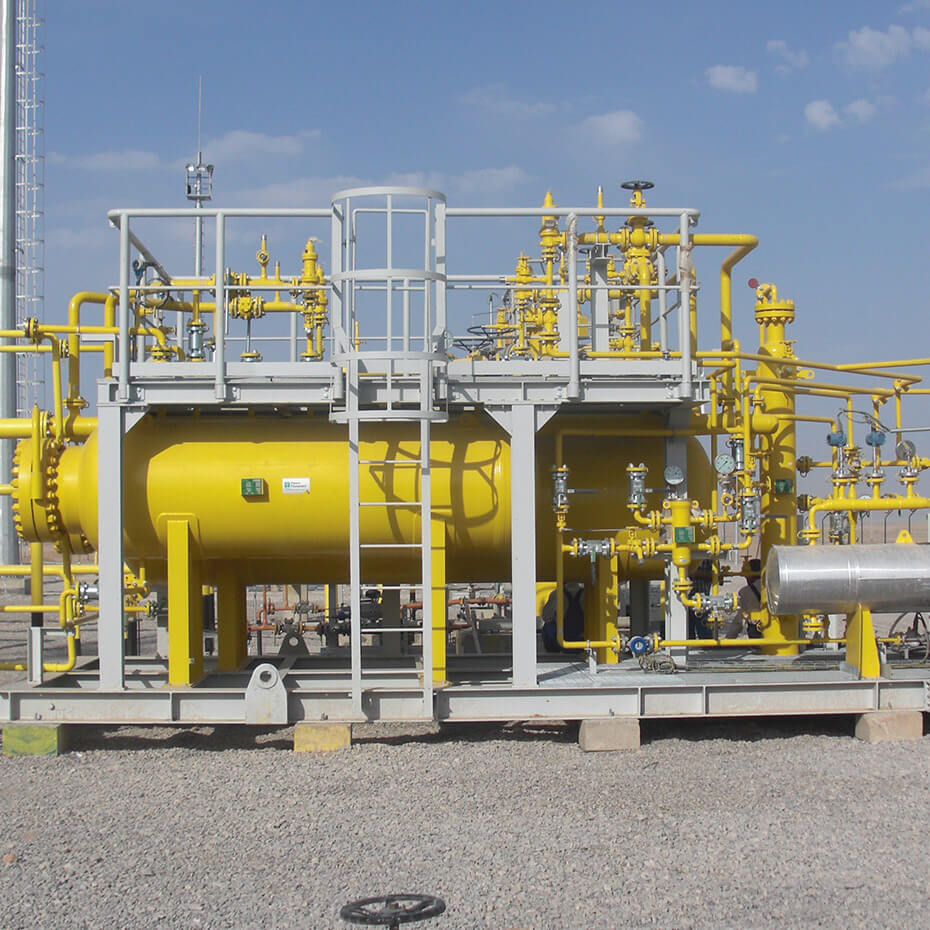Gas dehydration units with fixed bed technology (molecular sieves and aluminas)
Description
Water contained in natural gas has to be removed for various reasons: avoid hydrate formation and corrosion, and achieve the required dew point for liquefaction. Hydrate formation would lead to clogging of equipment and components. This free water phase might also contain portions of acid gas (H2S or CO2), thus increasing corrosion effects downstream: this is the reason why natural gas shall be dehydrated.
Gas dehydration units with fixed bed technology (molecular sieves and aluminas) can adsorb impurities by a solid desiccant. Dew points obtained by molecular sieve technology easily go beyond values achieved with Glycol or Low Temperature Separation (LTS) technology: water content achieved with this technology will be as low as 1 ppm vol.
Adsorbent media are usually molecular sieve beds 4A or 3A: the selection depends on gas composition (CO2 and H2S concentration), and required lifetime of the bed.
Typical applications of these systems are gas treatment plants upstream deethanizers and LPG recovery units upstream liquefaction units, or they can be used for re-injection into wells.


